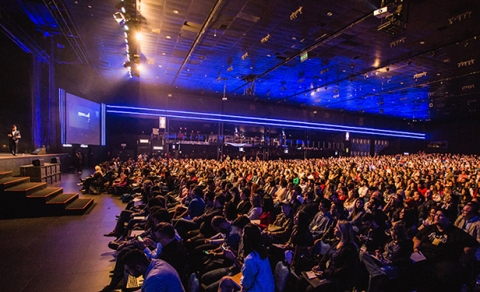CEIR Preliminary Projections on Economic Impact of COVID-19 on U.S. Exhibition Industry

The Center for Exhibition Industry Research released preliminary projections today that outline the impact that the novel coronavirus pandemic will have on the U.S. B2B exhibition industry in the coming months. According to CEIR officials, these calculations were obtained from data it collected from exhibition and event organizers who have cancelled their events.
“We have been closely monitoring the progress of COVID-19 in anticipation of how it will impact our industry for weeks,” said Cathy Breden, CEO of CEIR. “Data collection and analysis takes time, and we are pleased to have enough information now to answer some of the questions we have been receiving.”
CEIR reports that there are about 9,400 B2B exhibitions held in the U.S. annually. The updated figure for the industry’s total impact on the U.S. GDP is $101 billion in 2019, up from $97 billion in 2018.
As of March 15, 50 B2B trade shows and events have announced cancellations, resulting in a total loss of 5.2 million NSF and $318 million in show organizer revenue. When considering the direct spending of exhibitors and attendees, CEIR projects the loss to the economy to be around $1.8 billion.
New cancellation announcements are appearing daily, which is likely to ramp up following the CDC’s March 15 recommendation that events attracting 50 or more people be cancelled for the next eight weeks. On March 16, the Trump Administration escalated guidelines, advising people to avoid gatherings of more than 10 people.
CEIR officials went on to emphasize that simply counting the number of announced cancellations published in news reports significantly underestimates the actual number of event cancellations, since many small- to medium-sized event cancellations fly under the media radar. This is especially true for events held in hotels, they added.
With about 2,500 B2B events held between March 1 and May 15 each year, CEIR believes that about 50-80 percent of those events have already canceled or will likely cancel in the coming weeks. Based on the cancellations reported as of March 15, CEIR calculates that this will result in a loss of 41 to 65 million NSF and $2.3 billion to $3.6 billion in show organizer revenue. Combined with direct spending by exhibitors and attendees, CEIR estimates the total loss to the economy to be between $14 billion and $22 billion.
However, not all of CEIR’s projections were bleak.
“At this point, the decline in the exhibition industry is a one-off retraction of the industry’s size,” said CEIR Economist Allen Shaw, chief economist for Global Economic Consulting Associates. “Since this is a transitory event, we expect a full recovery for the exhibition industry in 2021.”
According to Carrie Ferenac, 2020 chairperson of the CEIR board of directors, the information CEIR compiled can be a helpful resource for helping federal legislators understand the economic impact of the B2B exhibitions industry.
“The information is being shared with industry associations who are advocating on the importance of trade shows to the U.S. economy, and the tremendous negative impact COVID-19 has had on organizer companies, venues and service providers, and to the people they employ,” said Ferenac.
For a more in-depth analysis by Shaw on the market effects of COVID-19, go here.


Add new comment